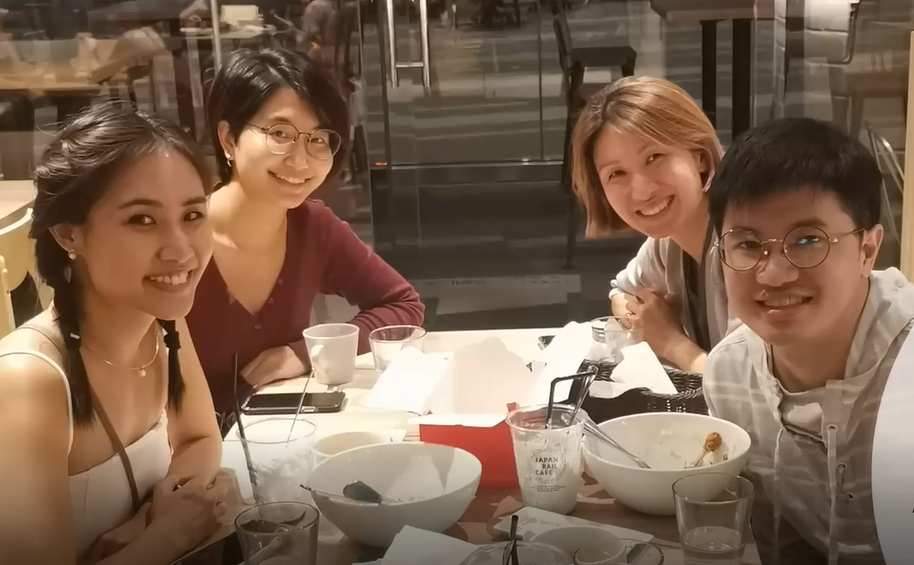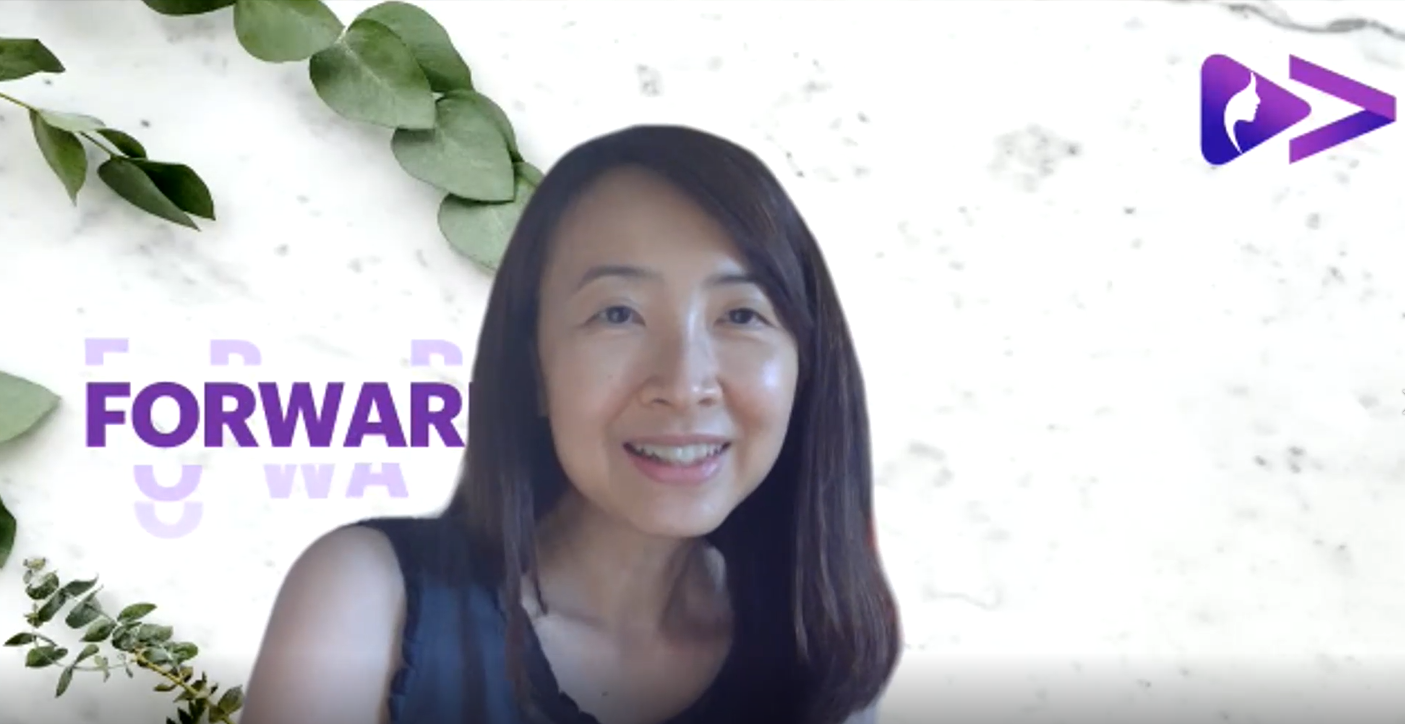19 April 2021 marked the completion of several outstanding Industrial Attachment Projects from the Graduate Diploma in System Analysis (GDipSA) programme's 50th batch despite a very different year in 2020.
With 30 minutes each to sum up their five-month internship during the pandemic at a presentation, the teams shared their biggest challenges and takeaway with the companies. Two of which were in the medicine industry and another in the manufacturing technology industry.
Each and everyone's experience was vast and different yet puts to play practical skills learnt from the GDipSA programme. For Jane and Khiong Kiat their internship took them to NUS Yong Loo Lin School of Medicine where they had to develop a clinical software tool for the collection and analysis of clinical trial data.

GdipSA50 students, Jane Lee (front, left) and Chua Khiong Kiat (front, right) with internship peers and mentors at NUS, Medicine
Jade and Jia En's internship experience saw them contributing to National University Health System (NUHS) where they had to integrate the NUHS Artificial Intelligence/ Machine Learning production server, 'Endeavour AI' with the future Next Generation Electronic Medical Record system to facilitate automation of tasks and aid in better decision-making. A specific use case might include helping nurses to identify patients who are at an increased risk of falls to improve patient care and safety more effectively and expediently.
Selly's internship experience was with Singapore Institute of Manufacturing Technology (SIMTech) where she showed a demo on how she had developed a Workflow Designer web application for the automation of operational processes. The system would transform current manual operational processes into paperless automated operational process such as leave application processes and grant application processes.
Shares Selly, "The development of this system was very challenging due to unfamiliarity with diagramming tools. Aside, there were limited documentation and demos." To which, Dr Leong Mun Kew, Director of NUS-ISS' Graduate Programmes quipped in that "thinking of the connectors that links the technical parts with layers of logic and connectors to the data already allowed the project to go way beyond the minimum. However it was impressive to see our students use Agile, Sprints and Amazon concepts as that is the way to go in the future and it was great that students could pick up certain skills on their own," added Dr Leong.
Mr Khoong Chan Meng, CEO of NUS-ISS echoed the sentiments that students were not privy to many sides of their attachment companies and did not have full interactions as "internship projects must have been challenging in many ways with Covid-19 arrangements being highly constraining." Yet despite the challenges, all projects adding into account their recommendations were great in terms of effort despite the difficulties.

On the panel, Ms Ng Wee Wei, Accenture's Country Managing Director shares her thoughts on the students presentations
As a word of encouragement, Ms Ng Wee Wei, Accenture's Country Managing Director shares that, "we do not know what exactly the future will bring, but when we look out and look at the intersection of digital transformation and the convergence of industries, we can only see that we have just started this whole acceleration that we are already experiencing and therefore there cannot be a more exciting time."
She urges the students that lifelong learning is key and staying relevant in the industry moving forward is to have the capacity to learn and discover. Yet the good thing is that a lot of knowledge is now open and the desire to learn and the tenacity to pick up something new makes us resilient.
Own your transformation journey now. For more information on NUS-ISS' Graduate Diploma in Systems Analysis Programme, visit here.